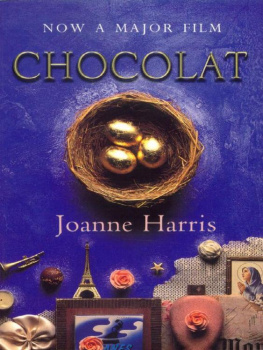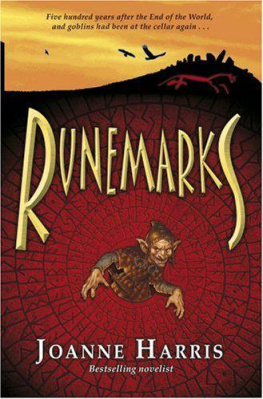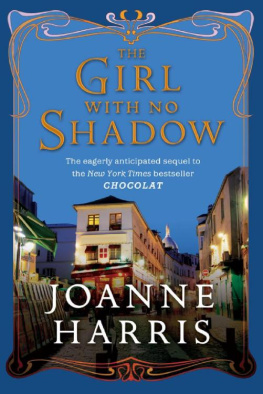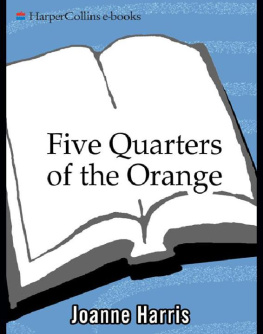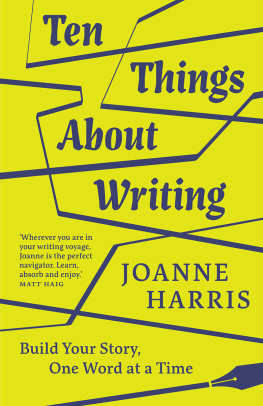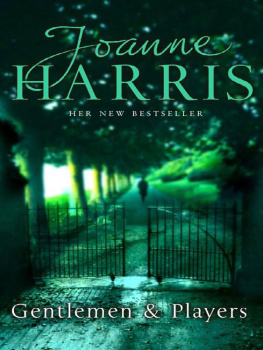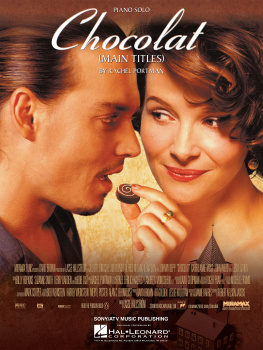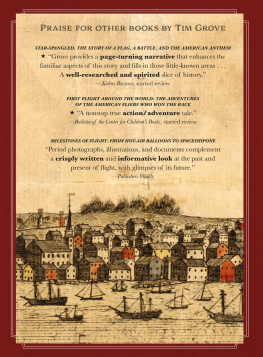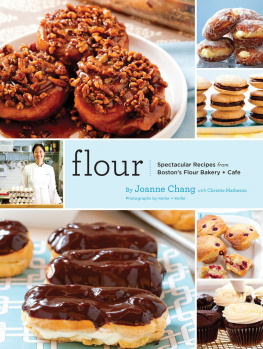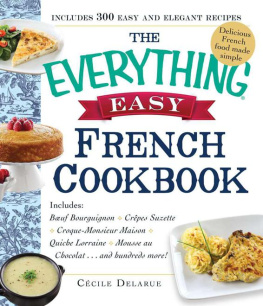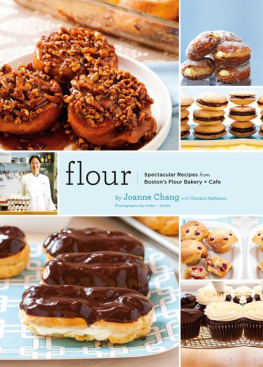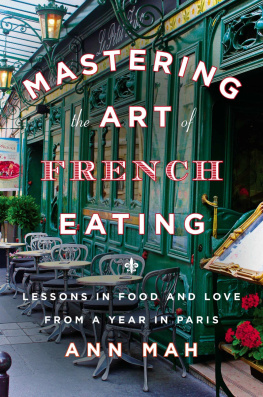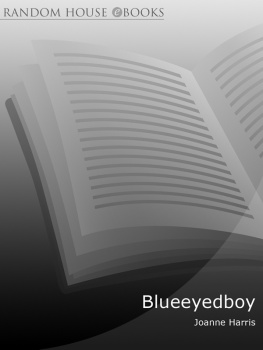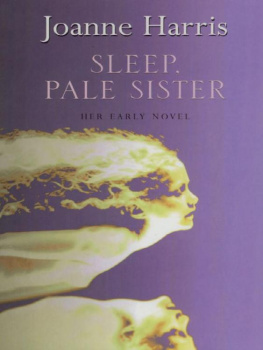Joanne Harris - Chocolat
Here you can read online Joanne Harris - Chocolat full text of the book (entire story) in english for free. Download pdf and epub, get meaning, cover and reviews about this ebook. year: 2000, publisher: Penguin (Non-Classics), genre: Detective and thriller. Description of the work, (preface) as well as reviews are available. Best literature library LitArk.com created for fans of good reading and offers a wide selection of genres:
Romance novel
Science fiction
Adventure
Detective
Science
History
Home and family
Prose
Art
Politics
Computer
Non-fiction
Religion
Business
Children
Humor
Choose a favorite category and find really read worthwhile books. Enjoy immersion in the world of imagination, feel the emotions of the characters or learn something new for yourself, make an fascinating discovery.
- Book:Chocolat
- Author:
- Publisher:Penguin (Non-Classics)
- Genre:
- Year:2000
- Rating:3 / 5
- Favourites:Add to favourites
- Your mark:
- 60
- 1
- 2
- 3
- 4
- 5
Chocolat: summary, description and annotation
We offer to read an annotation, description, summary or preface (depends on what the author of the book "Chocolat" wrote himself). If you haven't found the necessary information about the book — write in the comments, we will try to find it.
Chocolat — read online for free the complete book (whole text) full work
Below is the text of the book, divided by pages. System saving the place of the last page read, allows you to conveniently read the book "Chocolat" online for free, without having to search again every time where you left off. Put a bookmark, and you can go to the page where you finished reading at any time.
Font size:
Interval:
Bookmark:
Chocolat
Joanne Harris
In memory of my great - grandmother, Marie Andre Sorin (1892 - 1968)
Acknowledgements
Heartfelt thanks to everyone who helped to make this book possible: to my family for support, childminding and somewhat baffled encouragement; to Kevin for handling all the tedious paperwork; to Anouchka for the loan of Pantoufle. Thanks also to my indomitable agent Serafina Clarke and editor Francesca Liversidge, to Jennifer Luithlen and Lora Fountain, plus everyone at Doubleday who helped to make me so welcome. Finally, special thanks to fellow author Christopher Fowler for turning on the lights.
ONE
February 11, Shrove Tuesday
We came on the wind of the carnival. A warm wind for February, laden with the hot greasy scents of frying pancakes and sausages and powdery-sweet waffles cooked on the hotplate right there by the roadside, with the confetti sleeting down collars and cuffs and rolling in the gutters like an idiot antidote to winter. There is a febrile excitement in the crowds which line the narrow main street, necks craning to catch sight of the crepe-covered char with its trailing ribbons and paper rosettes. Anouk watches, eyes wide, a yellow balloon in one hand and a toy trumpet in the other, from between a shopping-basket and a sad brown dog.
We have seen carnivals before, she and I; a procession of two hundred and fifty of the decorated chars in Paris last Mardi Gras, a hundred and eighty in New York, two dozen marching bands in Vienna, clowns on stilts, the Grosses Tetes with their lolling papier-mache heads, drum majorettes with batons spinning and sparkling. But at six the world retains a special lustre. A wooden cart, hastily decorated with gilt and crepe and scenes from fairy tales. A dragons head on a shield, Rapunzel in a woollen wig, a mermaid with a Cellophane tail, a gingerbread house all icing and gilded cardboard, a witch in the doorway, waggling extravagant green fingernails at a group of silent childrenAt six it is possible to perceive subtleties which a year later are already out of reach. Behind the papier-mache, the icing, the plastic, she can still see the real witch, the real magic. She looks up at me, her eyes, which are the blue-green of the Earth seen from a great height, shining.
Are we staying? Are we staying here? I have to remind her to speak French. But are we? Are we? She clings to my sleeve. Her hair is a candyfloss tangle in the wind.
I consider. Its as good a place as any. Lansquenet-sous-Tannes, two hundred souls at most, no more than a blip on the fast road between Toulouse and Bordeaux. Blink once and its gone. One main street, a double row of dun coloured half-timbered houses leaning secretively together, a few laterals running parallel like the tines of a bent fork. A church, aggressively whitewashed, in a square of little shops. Farms scattered across the watchful land. Orchards, vineyards, strips of earth enclosed and regimented according to the strict apartheid of country farming: here apples, there kiwis, melons, endives beneath their black plastic shells, vines looking blighted and dead in the thin February sun but awaiting triumphant resurrection by MarchBehind that, the Tannes, small tributary of the Garonne, fingers its way across the marshy pasture. And the people? They look much like all others we have known; a little pale perhaps in the unaccustomed sunlight, a little drab. Headscarves and berets are the colour of the hair beneath, brown, black or grey. Faces are lined like last summers apples, eyes pushed into wrinkled flesh like marbles into old dough. A few children, flying colours of red and lime-green and yellow, seem like a different race.
As the char advances ponderously along the street behind the old tractor which pulls it, a large woman with a square, unhappy face clutches a tartan coat about her shoulders and shouts something in the half-comprehensible local dialect; on the wagon a squat Santa Claus, out-of-season amongst the fairies and sirens and goblins, hurls sweets at the crowd with barely restrained aggression. An elderly small-featured man, wearing a felt hat rather than the round beret more common to the region, picks up the sad brown dog from between my legs with a look of polite apology. I see his thin graceful fingers moving in the dogs fur; the dog whines; the masters expression becomes complex with love, concern, guilt. No-one looks at us. We might as well be invisible; our clothing marks us as strangers, transients. They are polite, so polite; no-one stares at us. The woman, her long hair tucked into the collar of her orange coat, a long silk scarf fluttering at her throat; the child in yellow wellingtons and sky-blue mac. Their colouring marks them. Their clothes are exotic, their faces are they too pale or too dark? their hair marks them other, foreign, indefinably strange. The people of Lansquenet have learned the art of observation without eye contact. I feel their gaze like a breath on the nape of my neck, strangely without hostility but cold nevertheless. We are a curiosity to them, a part of the carnival, a whiff of the outlands. I feel their eyes upon us as I turn to buy a galette from the vendor. The paper is hot and greasy, the dark wheat pancake crispy at the edges but thick and good in the centre. I break off a piece and give it to Anouk, wiping melted butter from her chin. The vendor is a plump, balding man with thick glasses, his face slick with the steam from the hot plate. He winks at her. With the other eye he takes in every detail, knowing there will be questions later.
On holiday, Madame? Village etiquette allows him to ask; behind his tradesmans indifference I see a real hunger. Knowledge is currency here; with Agen and Montauban so close, tourists are a rarity.
For a while.
From Paris, then? It must be our clothes. In this garish land the people are drab. Colour is a luxury; it wears badly. The bright blossoms of the roadside are weeds, invasive, useless.
No, no, not Paris.
The char is almost at the end of the street. A small band two fifes, two trumpets, a trombone and a side drum follows it, playing a thin unidentifiable march. A dozen children scamper in its wake, picking up the unclaimed sweets. Some are in costume; I see Little Red Riding Hood and a shaggy person who might be the wolf squabbling companionably over possession of a handful of streamers.
A black figure brings up the rear. At first I take him for a part of the parade the Plague Doctor, maybe but as he approaches I recognize the old-fashioned soutane of the country priest. He is in his thirties, though from a distance his rigid stance makes him seem older. He turns towards me, and I see that he too is a stranger, with the high cheekbones and pale eyes of the North and long pianists fingers resting on the silver cross which hangs from his neck. Perhaps this is what gives him the right to stare at me, this alienness; but I see no welcome in his cold, light eyes. Only the measuring, feline look of one who is uncertain of his territory. I smile at him; he looks away, startled, beckons the two children towards him.
A gesture indicates the litter which now lines the road; reluctantly the pair begin to clear it, scooping up spent streamers and sweet-wrappers in their arms and into a nearby bin. I catch the priest staring at me again as I turn away, a look which in another man might have been of appraisal.
There is no police station at Lansquenet-sous-Tannes, therefore no crime. I try to be like Anouk, to see beneath the disguise to the truth, but for now everything is blurred.
Are we staying? Are we, Maman? She tugs at my arm, insistently. I like it, I like it here. Are we staying?
I catch her up into my arms and kiss the top of her head. She smells of smoke and frying pancakes and warm bedclothes on a winters morning. Why not? Its as good a place as any.
Font size:
Interval:
Bookmark:
Similar books «Chocolat»
Look at similar books to Chocolat. We have selected literature similar in name and meaning in the hope of providing readers with more options to find new, interesting, not yet read works.
Discussion, reviews of the book Chocolat and just readers' own opinions. Leave your comments, write what you think about the work, its meaning or the main characters. Specify what exactly you liked and what you didn't like, and why you think so.

